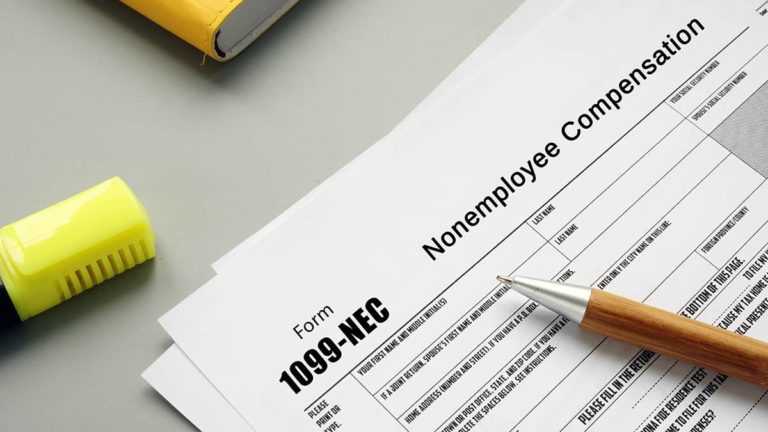In April of 2025, President Trump announced a 10% tariff on all countries, plus a higher reciprocal tariff on select countries with large trade deficits. Although Trump announced a 90-day pause on reciprocal tariffs on April 9 (except China, who now has a 145% tariff), one important question remains: How do tariffs affect small businesses?
Tariffs increase costs and supply chain disruptions for small business owners who import goods. On the other hand, domestic manufacturers and producers may actually benefit from the rising tax.
Here’s what to know about the hot topic of tariffs.
Skip Ahead
- What’s a tariff?
- What’s going on with tariffs in 2025?
- How do tariffs affect small businesses?
- Pros and cons of tariffs
- How businesses can deal with tariffs
- Tariff FAQs
What’s a tariff?
A tariff is a tax or duty that a national government imposes on imported or exported goods. Tariffs can provide revenue to countries, encourage domestic products, and regulate trade.
Who is responsible for paying tariffs? The business importing foreign goods is responsible for paying the tax to the government (at the border). So, you’re responsible for paying tariffs if your small business imports goods to the United States.
Tariffs are generally a percentage of a product’s value (aka an “ad valorem tariff”). A 25% tariff on a $100 product equals $25 in tariffs ($100 X 0.25 = $25). However, tariffs can also be “specific tariffs,” which is a fixed fee per unit of imported goods (e.g., $5). Here’s an overview of the two types of tariffs:
| Type of Tariff | How It Works | Commonly Used for… | Examples |
|---|---|---|---|
| Ad valorem tariff | Percentage of a product’s value (e.g., 25%) | Imported goods whose prices vary widely | Smartphones, clothing, and cars |
| Specific tariff | Fixed fee per unit (e.g., $25) | Standardized products (e.g., bulk goods) | Food, beverage, and oils |
What’s going on with tariffs in 2025?
President Trump announced a minimum 10% tariff on all exporters to the United States, plus additional tariffs on over 60 countries.
These tariffs raised the “average effective tariff rate in the United States to around 25% from around 5%,” according to an email from J.P. Morgan.
On April 9, Trump announced a 90-day pause on reciprocal tariffs and lowered the tariff rate to 10% for most nations. However, he increased the tariff charged to China to 145%.
How do tariffs affect small businesses?
Billionaire hedge fund investor Bill Ackman said that the tariffs would cause small businesses to go bankrupt without a pause. (As of April 9, there is a tariff pause in effect.)
Why?
Small businesses account for roughly 98% of the United States’ importers and exporters, according to a 2021 U.S. Census Bureau report.
Not to mention, small businesses tend to have tighter profit margins and flexibility than large corporations, making it more difficult to absorb price increases or pivot supply chains.
Despite the reciprocal tariff pause on most nations, small businesses will still be impacted. China is not included in the tariff pause, and the country is one of the top three countries that small businesses import from and export to, along with Mexico and Canada.
The tariffs may impact your business even if you manufacture or produce your final product in the United States. Everything from materials to equipment may face increased costs.
Take a look at the following ways tariffs may impact American small businesses:
- Increased cost of goods: Businesses will either need to raise prices or take a financial hit, as 42% of small businesses have already reported increased costs.
- Supply chain disruptions: It may be harder to get the goods you need—30% of small businesses said they already have experienced delays in shipment and fulfillment.
- Decreased demand: Small businesses that export goods may see lack of demand from foreign consumers as governments impose reciprocal tariffs on U.S. exports.
- Damaged relationships: Many businesses take years to develop supply chain relationships, which the increased tariffs could impact.
| Tariffs won’t impact all small businesses negatively. |
|---|
| American businesses that make products domestically may actually benefit from increased tariffs. The increased tariffs can help level the advantages—aka lower costs—businesses that import goods have. Not to mention, large companies may move manufacturing back into the U.S., which can benefit small businesses that work with them. |
Read the response: Small businesses react to tariffs
According to PBS, small business owners nationwide have strong thoughts about the quickly evolving tariffs. The biggest worry? Uncertainty.
Many small business owners, like Peter Andrews, founder of Culture Wine Co., worry that everyone in the supply chain will see higher prices—including the consumer, sharing:
I want the wines to be fairly priced to consumers in the end. And so what will happen [with tariffs] is, farmers will take a hit, producers will take a hit, I will take a hit, and then consumers will see higher prices.”
But not all small businesses feel the same way. Sunny Kim, owner of American Made Apparel Manufacturing, said that although tariffs affect initial costs, they may actually help in the long run, sharing:
I do feel like it’s going to cause us to get more inquiries that potentially will land bigger accounts in the future. [Tariffs] do affect my costs initially, but I’m hoping that, in the long run, people will realize keeping manufacturing in the U.S. will actually be a better thing for the long run and also for them to be able to offer an American-made line.”
To sum it up: As the new tariffs situation continues to unfold, small businesses may continue navigating the uncertainty by planning for the worst and hoping for the best.
Pros and cons of tariffs
Tariffs don’t impact all businesses equally. For those impacted, tariffs can be devastating to your bottom line. But if you manufacture and produce goods domestically, tariffs can help your small business.
Compare the advantages and disadvantages of tariffs:
| Pros of Tariffs | Cons of Tariffs |
|---|---|
| Makes American goods more competitive | Increased costs for businesses that import goods |
| Boosts local manufacturing and production | Supply chain disruptions |
| Supports domestic business and job growth | Increased prices for consumers |
How businesses can deal with tariffs
Many small businesses that import and export goods are worried about how impending tariffs will affect their companies. If tariffs affect your company, know your options for handling the increased costs.
Here are a few ways you can deal with tariffs:
- Raise prices on your products
- Diversify supply chains
- Negotiate better terms with suppliers
- Streamline operations to improve efficiency and cut costs
- Wait to see if tariffs will get rolled back
Tariff FAQs
A tariff is a tax or duty that a national government imposes on imported or exported goods.
Yes, businesses pay tariffs on the goods that they import into the country.
Some businesses may need to increase prices to deal with the increased cost of tariffs. Others may opt to absorb the cost and not increase consumer prices.
Increased tariffs increase how much businesses pay to import products from abroad. This may result in an increased cost of goods and supply chain disruptions, which can hurt profits and customer demand.
Tariffs can help level the playing field and make American-made products more competitively priced. This can encourage consumers (and other businesses) to buy American-made products.
Businesses can prepare for tariffs by diversifying supply chains, negotiating prices with suppliers, improving efficiency, and evaluating pricing. Others may decide to wait and see if tariffs will get rolled back.



